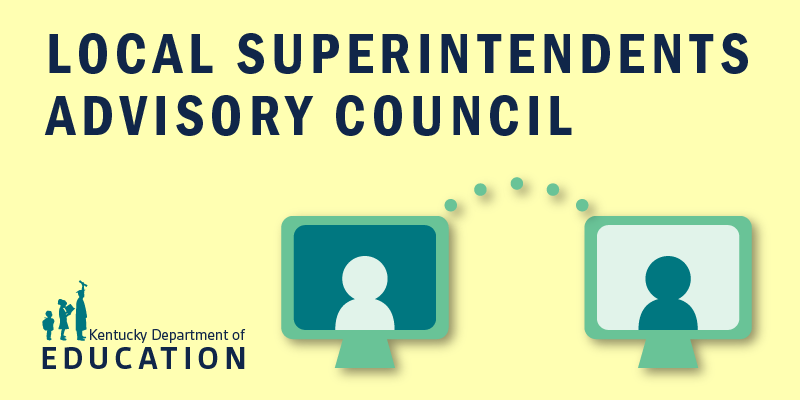By Matthew Tungate
matthew.tungate@education.ky.gov
The General Assembly’s 2009 Senate Bill 1 (SB 1) overhauled education in Kentucky, ending the Commonwealth Accountability Testing System (CATS) and requiring the state Department of Education to establish new, clearer curriculum standards that are better aligned for college readiness and global competition, among other things.
However, even superintendents had trouble digesting all the changes – and they had more information than most people, according to Sandra Johnson, superintendent of the Hazard Independent school district.
So she was one of the first people to take advantage when Kentucky Educational Television (KET) released online training modules about SB 1 in August. She came away impressed.
“I learned a tremendous amount by going through (the training), so I recommend them to everyone out there,” Johnson said.
KET and the Department of Education produced seven self-paced modules targeted to teachers and administrators to help provide information about the changes included in SB 1. Module topics include the law and its effect on education; the revised state content standards; teacher effectiveness; assessment literacy; a balanced assessment and accountability system; struggling schools; and college- and career-readiness.
Transforming Education in Kentucky: A free, media rich introduction to Senate Bill 1 launched Aug. 1, and is hosted on KET’s Teachers’ Domain. Each module takes 60-90 minutes to complete.
The modules have 46 video segments and seven Flash interactives, all of which can be used by participants as resources for presentations to other audiences. The video segments, such as the two examples below, include footage from Kentucky classrooms and interviews with Education Commissioner Terry Holliday; Robert King, president of the Council on Postsecondary Education; Phillip Rogers, executive director of the Education Professional Standards Board; and Gene Wilhoit, executive director of the national Council of Chief State School Officers and a former education commissioner in Kentucky.
Related: Seven modules guide educators, parents through SB 1
Johnson was so impressed with the modules that she told the teachers in her district about them the first day of back-to-school meetings and offered teachers a day of professional development (PD) credit for completing them.
“Anyone coming in off the street could know what is behind Senate Bill 1 and where we’re going in education,” Johnson said. “I want teachers to be aware of that. I want them to know the basis for why this is the direction Kentucky is going in education.”
So far, 63 educators in Hazard Independent have certificates for completing at least one module, more than any other district in the state.
Sherri Cornett, library media specialist and science teacher for 12 years at Hazard High School, has completed all seven modules and said she feels better prepared for the changes coming to Kentucky schools. For instance, she liked having extra examples of formative assessments and more viewpoints on college readiness.
“It gave me some ideas of things that I was already doing in class that I could actually use as a measure of student preparedness,” Cornett said.
In fact, she said she would like to see the modules updated as SB 1 is implemented.
“I think they offer additional information beyond the basics that are explained on the nightly news,” she said.
Linda Teague, an English and social studies teacher who has spent 39 of her 41 years teaching at Hazard High and has completed all the modules, said one of the modules reminded her of her principal.
“Mr. (Donald) Mobelini is concerned about all students,” she said. “He, too, believes all students can learn and tries to lessen hindrances to their learning. In addition, he supports his teachers.”
Teague suggested more teachers should watch the modules.
“It’s worth the investment of your time,” she said. “SB 1 is a lengthy document. The modules cut to the heart of the matter.”
Lengthy indeed – SB 1 is 76 pages and more than 20,000 words. The portion of the law that deals with the new accountability system begins with “The Kentucky Board of Education shall be responsible for creating and implementing a balanced statewide assessment program that measures the students’, schools’, and districts’ achievement of the goals set forth in KRS 158.645 and 158.6451, to ensure compliance with the federal No Child Left Behind Act of 2001, 20 U.S.C. secs. 6301 et seq., or its successor, and to ensure school accountability.”
Huh?
The module introduces it like this: “Big changes are coming in assessment and accountability – ones that will fairly and accurately represent student learning. The new system mandated by Senate Bill 1 includes a variety of assessments over time – some for instruction and some of instruction.”
Or, as Gene Wilhoit, former Kentucky commissioner of education and current executive director of the Council of Chief State School Officers, says in a video clip, “Accountability has to play out in multiple forms. No one test should be the single judgment for the success or failure of a student or a teacher.”
Lynda Thomas, manager of Professional Development and Distance Learning for KET, said the Department of Education provided the content of the modules, which were finished in less than four months.
“We made a conscious effort to write in a journalistic style,” she said. “We tried very hard to write in a way that would be open and engaging. We also wanted the text to support the video. We know that the video is carrying some of the instructional power.”
Johnson has seen positive results of teachers watching the modules. For instance, teachers are meeting weekly in professional learning communities – which are discussed in the modules.
“They’re up and running with all this,” she said. “They’re not going to be left behind.”
MORE INFO …
Lynda M. Thomas, lthomas@ket.org, (859) 258-7266




Leave A Comment